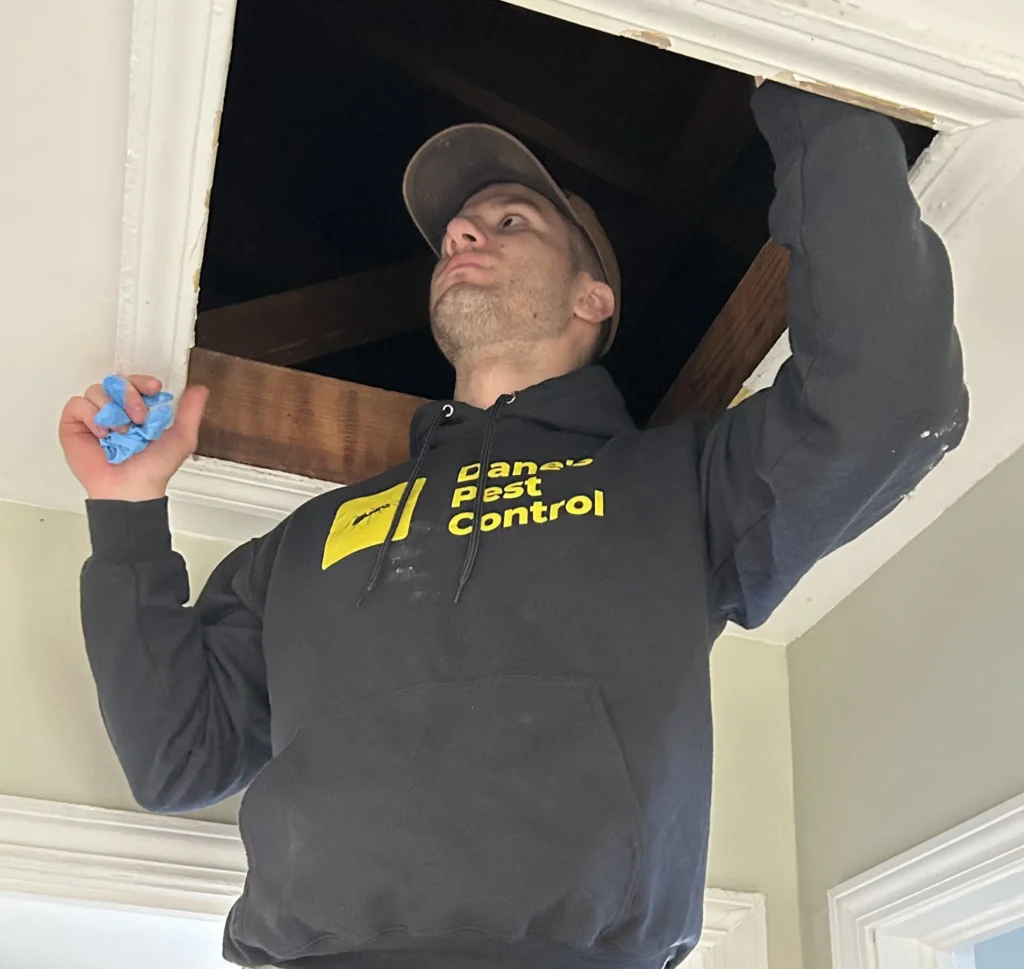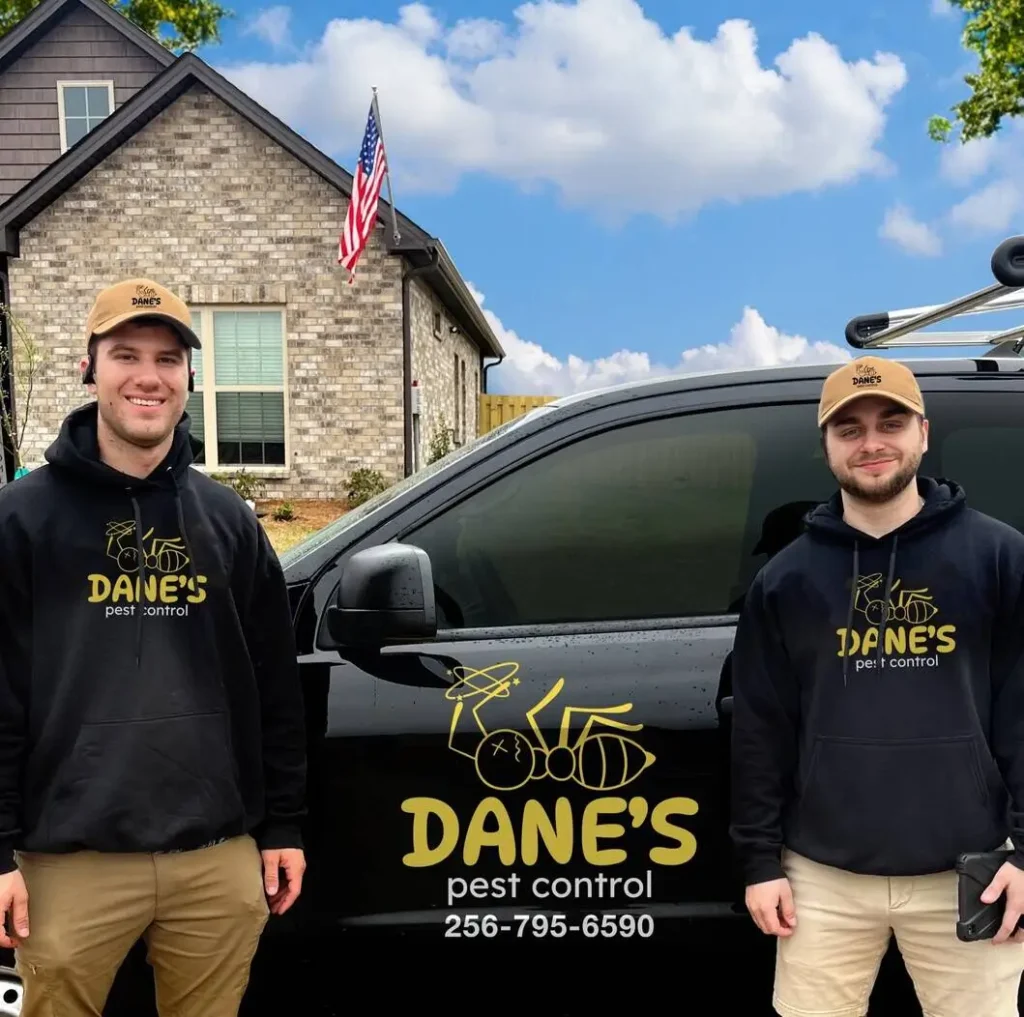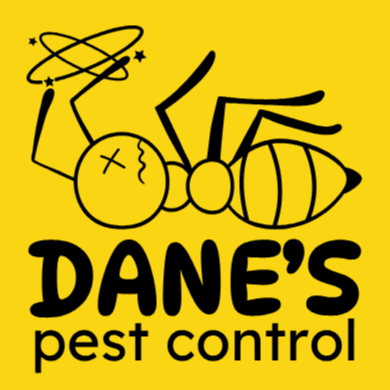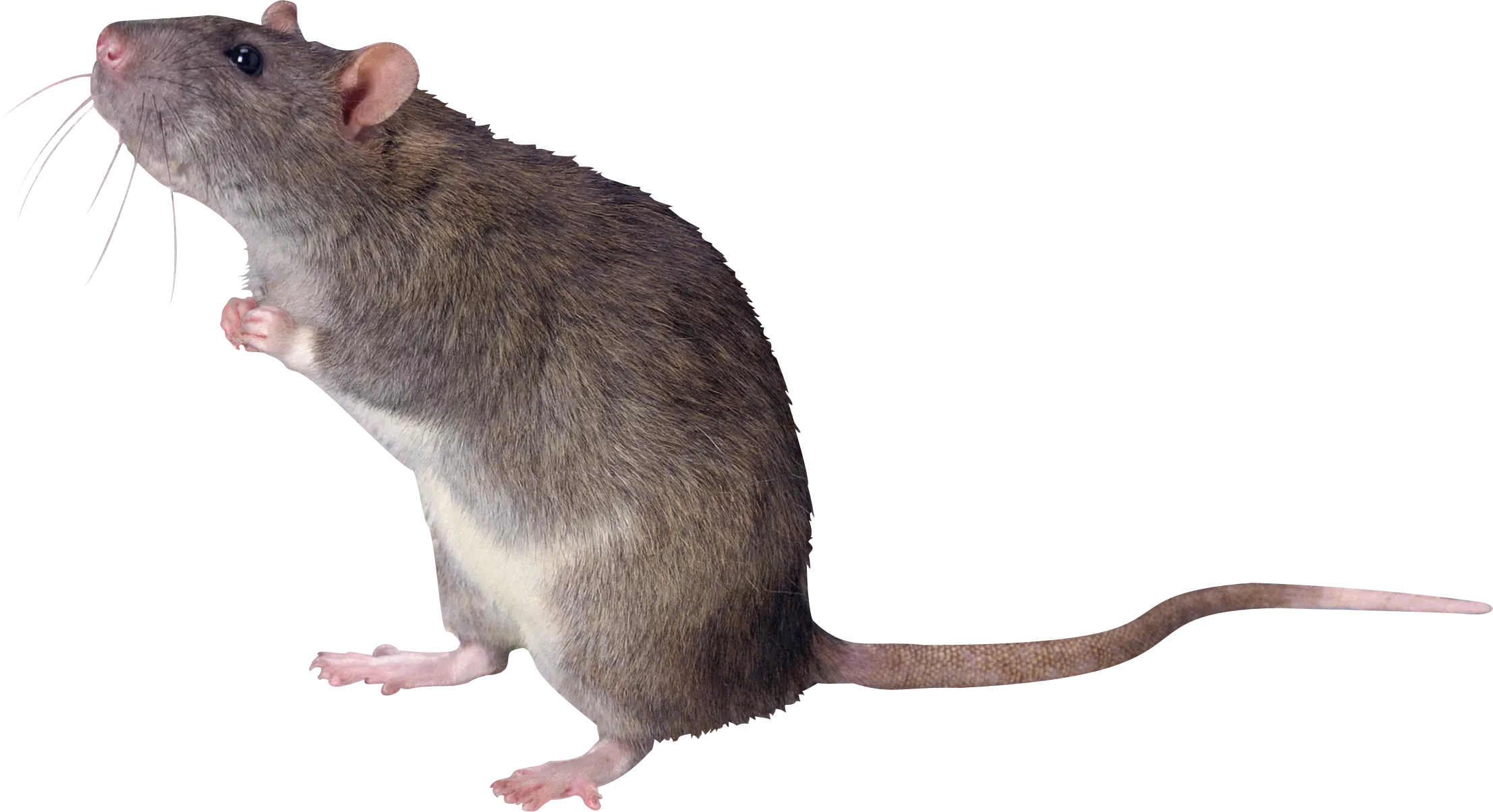Rodent Control Huntsville AL

Our rodent control service is designed to get rid of rats and mice from your Huntsville Alabama home. Our team of rodent exterminators specialize in removing and preventing rodents. We use extermination methods like trapping, poisoning, and sealing up holes to stop rodent infestations in homes and commercial properties.
Get Rid of Rodents & 30 Other Pests Starting at $40/Month
GET MORE INFORMATION

What Our Customers Are Saying
EXCELLENTTrustindex verifies that the original source of the review is Google. Highly recommended. Quick on answering texts and any questions. Zach was wonderful, he took the time to answer any questions I may have. Great job!!Trustindex verifies that the original source of the review is Google. I highly recommend Ben Dane, before obtaining Ben’s services I was having a problem with bugs inside my home and fire ants on the outside. After a couple of visits I have not had any issues. I am very happy with the service I am receiving.Trustindex verifies that the original source of the review is Google. We’ve been with Dane over a year now and they are great company. Zach was super helpful and friendly and answered any concerns we had. We couldn’t think of a better pest control company. I would highly recommend above other companies in the area!Trustindex verifies that the original source of the review is Google. Ben and his company do excellent work!! I will say I am not one to be easily impressed but his expertise, service, prices, attention to detail were exceptional!! He answered all my questions patiently and made me feel at ease with the pest problem I had. He was great to work with!! I highly recommend this company!Trustindex verifies that the original source of the review is Google. The service from Dane’s has been outstanding since I contracted last year. Ben Dane went above and beyond to eliminate a pest problem in an older home that I had purchased upon hiring the company. Additionally, service this week by Zach was helpful and professional and he discovered a source of wasps. Highly recommend this company!Trustindex verifies that the original source of the review is Google. Outstanding service! Dane's Pest Control responded within minutes and was out the same day. I couldn't ask for better service—quick, professional, and reliable. Highly recommend!Trustindex verifies that the original source of the review is Google. This was the first time. Dane did an excellent service. I am happy with him.Trustindex verifies that the original source of the review is Google. Great service and guy to work with. He is clear and upfront and ready to take your business. Looking forward to continue working with him.Trustindex verifies that the original source of the review is Google. Zak did a wonderful job your service is top notch
GET MORE INFORMATION

Dane’s Pest Control: Rodent Control Service
Mice and Rats are two of the most common problems homeowners and businesses have in Huntsville. Because of the damage and health risks they pose having pest control at your huntsville home is highly recommended. Our rodent control service consists of 3 steps to handle any rodent infestation.
1. Rodent Inspection
One of our rodent control experts will conduct a comprehensive inspection to identify nesting sites, travel paths, and sources of food and water for the rodents. Following the inspection, the exterminator will create a customized plan to eliminate all mice and rats, tailored to the unique aspects of each rodent infestation.
2. Rodent Removal
We have two options for rodent removal for inside a home or business.
- Rodent Poison – This is a cost-efficient yet effective solution. We place rodent bait in key areas throughout the home or business to ensure rodents find and consume it, effectively ending the infestation.
- Rodent Trapping – This method is a bit more costly but prevents the risk of rodents dying and causing odors within the property. Our team will place traps in key areas, catching all rodents and removing their bodies from the property.
3. Rodent Prevention
Rodent prevention is a crucial part in a successful rodent control service. If rodents have infested a property before then they are likely to do it again. If necessary, we perform exclusion on buildings to seal any likely entry points that rodents may use to get inside a home. In conjunction with exclusion we also use rodent bait stations outside to reduce the population of rodents living or traveling near the property.
Signs of A Rodent Infestation
Detecting a rodent infestation can be difficult since these creatures are mostly nocturnal and often stay hidden. However, they leave behind clear signs of their presence. Here are the most common signs to look for to know if you have a rodent infestation.
Rodent Smell
Mice and rats release strong, urine-like odors. To detect an infestation, check less-used areas such as attics, crawl spaces, utility rooms, and spare bedrooms. If you notice any stale urine smells in these spaces it is a sign you have a rodent infestation.
Damaged Food Storage
Rodents need a food source to survive and they will search very hard to find one. Most commonly they will find leftover food and crumbs inside the house. But they will also chew into sealed food stored in cabinets and pantries. Look for chew marks on cereal boxes and other packaged food in the back of your pantry to find signs of rodent activity.
Entry Points
Rodents will take any opportunity to enter your home or business. Mice can squeeze through gaps as small as the width of your pinky finger, while rats can navigate through openings the size of your thumb. The most common entry points for rodents are broken vent covers, air conditioning unit pipes, damaged crawl space doors, weep holes, the lower corners of garage doors, roof vents, and various other openings. Mice and rats will oftentimes create their own entry points by chewing holes through the home. These holes can be identified by the teeth marks around the hole.
Rodent Droppings
Rodent droppings are the most noticeable and common indicators of a rodent infestation. The more droppings you find, the larger the infestation is likely to be. Mice can produce 50 to 75 droppings a day. These small, brown pellets are typically ⅛ to ¼ inch long with pointed ends. They usually leave droppings in areas where they spend time chewing or gnawing. Common places to find mice droppings are kitchen cabinets, pantries, behind stoves, attics, corners of garages, and other areas where mice spend time. Rats produce fewer droppings than mice, typically leaving 30 to 50 pellets per day. Rat droppings are black, larger (½ to ¾ inch long), and rounded at the ends, often resembling a large grain of rice. Rats will commonly poop in areas where they are eating. They also use droppings to mark their territory, so you may find them in areas like attics, crawlspaces, utility rooms, under sinks, and other places they frequent.
Rodent Travel Pathways
Rodents like to use the same pathways when traveling through and around homes. Rats are known to only follow one pathway to and from their food and water source. You can identify rat trails by the dark stains they leave behind. These grease marks are left behind when they repeatedly travel and squeeze through the same openings. Mice and rats will also leave trails in attic insulation where they travel to and from their nest.
Types of Rodents in Huntsville AL
Identifying the type of rodent in your home is crucial for implementing an effective removal plan. Here’s a list of common rodents found in Huntsville to help you determine which one may be infesting your home or business. Here are the most common rodents in Huntsville.
Roof Rat
Roof rats are the most common species of rat in Huntsville Alabama. They have long skinny bodies measuring around 6 – 8 inches long. They have large eyes and ears, scaly tails, and are often brown or dark gray with white underbellies. Their tails are roughly the same length as their bodies, so they can measure up to 12-14 inches from nose to tail. Roof rats are nocturnal and forage at night, eating almost anything they can find. Common food choices include nuts, berries, seeds, slugs, snails, cockroaches, and human food. A subtle sign of a roof rat infestation is broken snail shells around the house. Roof rats are also known for breaking into food items in pantries and cabinets. Roof rats are exceptional climbers and tend to nest in high places like roofs and rafters. This is the reason for their name, roof rat. However, they will also establish nests in lower areas such as crawl spaces, woodpiles, dense vegetation, and storage boxes. Roof rats are highly cautious of new objects and environments, a behavior known as neophobia. They usually stick to familiar paths between their nests and food sources, often urinating and defecating along these trails to mark their territory.
Norway Rats or Gopher Rats
Norway rats are often known as “gopher rats” here in Huntsville Alabama because of their tendency to dig holes and because of their large appearance. Gopher rats are significantly larger than roof rats, measuring about 7 to 9 inches in length with tails slightly shorter than their bodies. Gopher rats have a stockier build than roof rats, suited for digging and burrowing instead of climbing. Norway rats are more of a brown color with gray off-white bellies, they also have small eyes and ears. Norway rats are social animals often creating burrows near one another. When you find one burrow hole it usually means there are more close by. They are less likely to infest homes and businesses as they tend to live in or near farms, fields, rivers, railroad embankments, garbage piles, and other areas where natural food is abundant. Although less common, norway rats still infest many homes in and around Huntsville. They are most often seen infesting homes in the fall when food becomes less abundant. They can enter a building through a hole the size of a quarter. They build nests and spend their time on the main and lower levels of buildings in areas like basements, crawlspaces, walls, piles of debris, and sewers. Like roof rats, Norway rats will eat almost anything to survive, but they prefer meat, fish, and grains like cereal. They are also particularly fond of dog food.
House Mice
House mice account for almost all mouse infestations in Huntsville. These small round rodents measure 2 – 4 inches long and vary from light brown to gray in color. They also have pointed noses and big ears. House mice are highly social animals with a defined hierarchy within their communities. Dominant males usually control several females within a territory that spans about 5 feet around their nesting site. Mice are generally friendly with relatives but can be very aggressive toward unfamiliar mice, especially those outside their social groups. House mice prefer nesting in dark, secluded areas, such as attics, walls, crawl spaces, and garages, where nesting materials are easily accessible. Mice favor attics because the insulation provides material for cozy nests. Attics also allow mice easy access to most areas of the home since they can travel down walls and pipes. This convenient pathway enables them to move between their nests and locations like kitchens and bathrooms to find food and water. Mice unlike rats are extremely curious animals who are constantly exploring new areas in search of food, water, and nesting material. Mice prefer grain based foods like seeds and nuts, but they will also eat insects as well. Inside homes mice will eat just about any human food left unattended but will prefer grain based foods.
Deer Mice, Harvest Mice, and Meadow Jumping Mice
These species of mice are far less likely to be found in Huntsville homes and businesses, as they typically inhabit fields, forests, pastures, and other rural areas. While they may occasionally venture indoors in search of food and water, they generally remain in their natural habitats, where they survive on fruits, seeds, nuts, insects, and other wild food sources.
Health Risks Caused by Rodents
Rodent infestations are similar to cockroach infestations because pose serious health risks to Huntsville businesses and homes. Rodents are known carriers of pathogens that can cause very severe illnesses like hantavirus, leptospirosis, and salmonella. Rodents transmit diseases by direct contact via their urine, droppings, saliva, and nesting materials. Mice and rats urinate frequently, contaminating the areas they visit most. These areas are often places we use daily like furniture, tables, countertops, beds, and even toilets. Frequent contamination increases the risk of contracting rodent-borne illnesses, posing a serious health risk in our everyday spaces. Rodents most commonly spread disease through their saliva, making proper food storage crucial for prevention. When they nibble on food items they leave behind harmful pathogens that humans may accidentally consume. Because rodent-borne illnesses are so easily contracted it is important to address rodent infestations quickly.
Common Questions About Rodent Control
How Much Does Rodent Control Cost?
- Our pest and rodent control service starts at $40 per month. Rodent trapping and exclusion are one time fees and are based on the situation.
Is Professional Rodent Control Worth It?
- Yes, professional rodent control is worth it. The cost of an exterminator will be much less compared to the damage and health risks that can be cause from rodents.

Dane’s Pest Control
- Huntsville Owned and Operated
- Pet and Kid Friendly
- Effective Solutions
- Fast Customer Service
We take pride in serving 1000’s of homes in North Alabama. We use the latest techniques and products to deliver an effective service while also being pet and kid friendly. No matter the pest or rodent problem, rest assured that we have a solution for your Huntsville home. If you are looking for pest control near you then look no further than our team here at Dane’s Pest Control!
.

